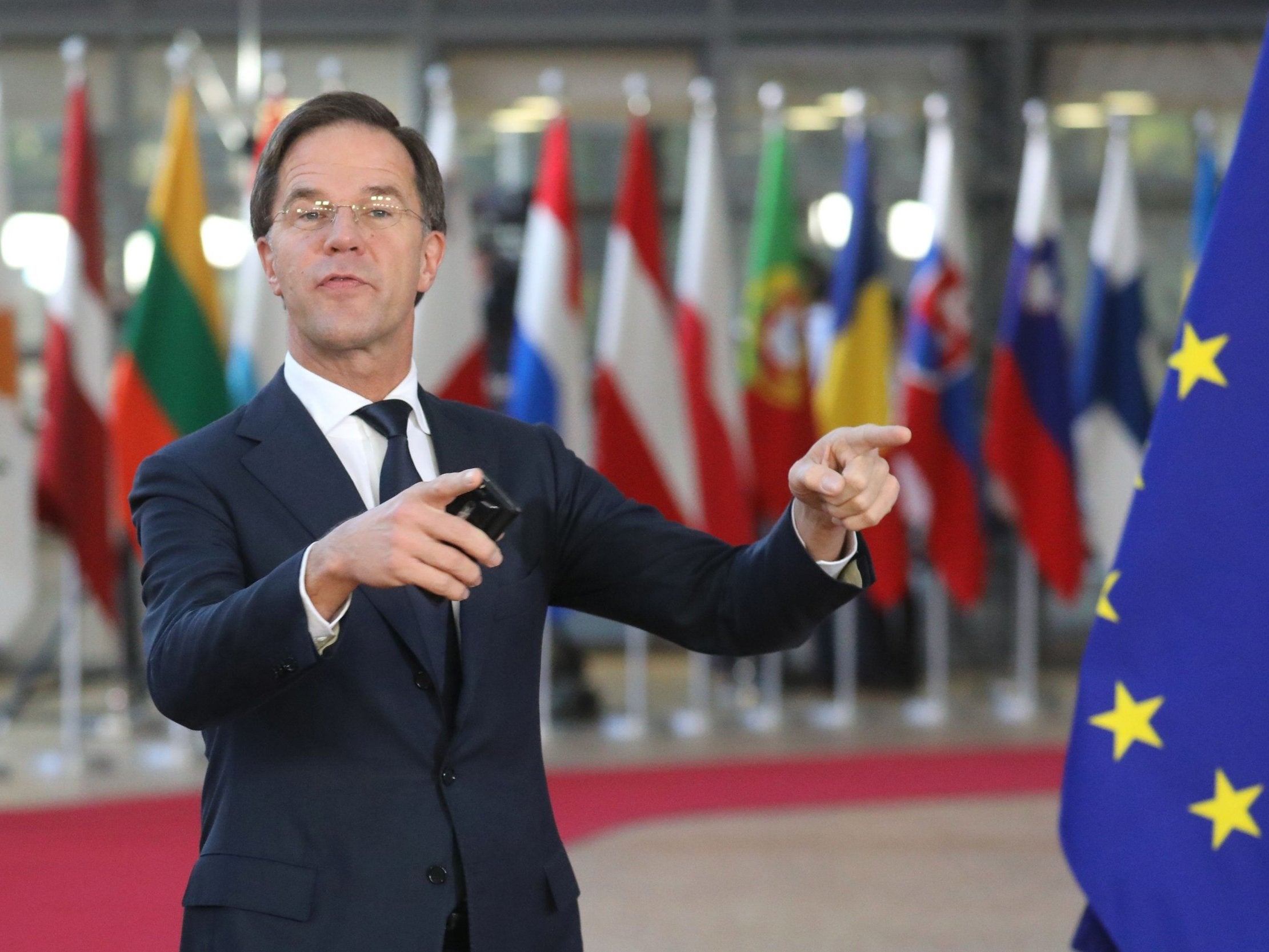Has Brexit trashed any chance of other countries leaving the EU?
Analysis: There has been a surge in pro-EU sentiment on the continent since Brexit, notes Jon Stone


During the EU referendum campaign Nigel Farage predicted a “domino effect” of other countries leaving the EU if Britain departed the bloc. To be blunt, there is no sign of that happening.
On Tuesday, the Netherlands produced a nice example of the way Brexit has gone down in other European countries. Prime minister Mark Rutte, usually thought of as a friend of the UK, took out a full-page newspaper advert warning his people to pay attention to the “chaos” over the North Sea in Britain. Far from setting an example for other breakaway states to follow, Britain’s withdrawal is a cautionary tale to the continent – where the narrative is one of a once-respected nation making a fool of itself.
Even the most rebellious EU member states, led by right-wing populists, are not planning to leave. When the Hungarian foreign minister was asked on British radio recently whether his country would consider leaving the EU – given its constant skirmishes with Brussels – he simply said no. Neither is the issue on the agenda in Italy, where far-right interior minister Matteo Salvini is, if anything, driving EU policy on migrants, rather than retreating from the union.
There are suspicions that many of these new wave populist politicians do secretly want to leave – but dare not say so publicly because it is a politically unpopular position. This in itself underlines just how far outside the mainstream support for exiting the bloc has become.
Polling from across the continent is emphatic. In Denmark, usually seen as the second most Eurosceptic member state after the UK, voters would stay by 55 per cent to 27 per cent, a 28 per cent gap in favour of the EU, according to broadcaster DR. This represents a substantial swing away from Euroscepticism since polling in 2016, undertaken before Britain’s own vote.
Perhaps the most staggering numbers are even closer to home. Some Brexiteers have suggested “Irexit” – Ireland leaving the EU – as a solution to the border problem which has dogged withdrawal negotiations. There is almost nothing on this earth less likely to happen: the latest poll by Red C shows a full 92 per cent of the Irish population wanting to stay in the EU, with just 7 per cent voting for exit and 1 per cent saying they did not know either way. In Dublin the figure in favour of membership hits an almost implausible 96 per cent.
There will be all sorts of factors behind these numbers as well as Britain’s example: the abatement of the euro crisis and of the migration crisis will have played a role. One explanation that is popular in Brussels is that the unity of the remaining EU27 in negotiating Brexit has actually brought them closer together – uniting them behind a common foe (or “partner”, as they would publicly refer to the UK).
It’s worth bearing in mind that Brexit hasn’t happened yet – if the UK somehow ends up prospering outside the bloc, perhaps other countries will start to get itchy feet. But they don’t like the look of what they’ve seen so far.
Got an unanswered question about Brexit? Send it to editor@independent.co.uk and we’ll do our best to supply an answer in our Brexit Explained series
Join our commenting forum
Join thought-provoking conversations, follow other Independent readers and see their replies
Comments